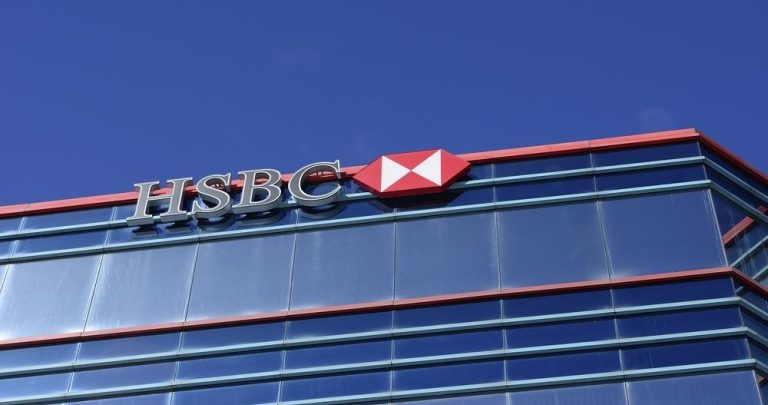HSBC Holdings plc (LON:HSBA) has announced it will propose a special resolution on climate change at the Annual General Meeting on 28 May 2021. The resolution will set out the next phase of HSBC’s strategy to support its customers on the transition to net zero carbon emissions.
HSBC’s resolution will be the sole resolution on climate change at this year’s AGM. HSBC is pleased that ShareAction and a number of shareholders who had originally proposed a separate shareholder resolution on climate change, have agreed to withdraw this and support HSBC’s resolution, following constructive and positive discussions based on a common goal of helping to build a net zero global economy.
In October 2020, HSBC set out its ambition to reduce emissions in its operations and supply chain to net zero by 2030, and to align the bank’s financed emissions at a portfolio level to net zero by 2050 or sooner.
The HSBC resolution outlines the next phase of the bank’s net zero strategy, with a particular emphasis on how it will support its customers on their own transition journeys. The bank expects to provide between US$750bn and US$1trn in financing and investment to support its customers to progressively decarbonise and help realise the opportunity for long-term, sustainable growth.
The resolution and supporting statement will set out the detail of HSBC’s plan to pursue its ambition.
It commits to:
1. Set a clear, science-based strategy with short and medium term targets to align HSBC’s provision of finance1 to the Paris Agreement goals2:
“This… would see HSBC work with customers in all sectors to support their transition. … We intend to perform this analysis by industry sector, beginning in 2021 with Oil & Gas and Power & Utilities, and extending to other sectors in 2022 (for example Automotive, Building Materials, Construction). We believe this approach will allow us to identify opportunities for constructive engagement with customers, while also helping to ensure progress on aligning our financing activities at a sector and portfolio level with the goals of the Paris Agreement.
We intend to set clear, measurable short and medium term targets on a sector by sector basis that are consistent with net zero outcomes by 2050. In relation to short and medium term, we expect this to mean targets for the next five to ten years. We plan to use science-based scenarios that follow 1.5 degrees Celsius warming pathways, and which are not overly reliant on negative emissions technologies, to assess alignment of our financing activities. We plan to provide further detail on this approach by the end of 2021, starting with the Oil & Gas and Power & Utilities sectors, and including methodology, scenarios, treatment of negative emissions and core assumptions used.”
2. Publish and implement a policy to phase out the financing1 of coal-fired power and thermal coal mining by 2030 in markets in the European Union / Organisation for Economic Cooperation and Development, and by 2040 in other markets:
“Our current policies prohibit financing by HSBC of new coal-fired power plant projects and new thermal coal mines or new customers dependent on thermal coal mining. However, although thermal coal is currently used widely as a source of power generation in many markets, we recognise that the expansion of coal-fired power is incompatible with the goals of the Paris Agreement. Reliance on coal-fired power will need to reduce rapidly in order to achieve net zero aims. Failure to do so will heighten risks posed by climate change to society, as well as transition risk for HSBC’s own business. We also appreciate that emerging markets, in which we have a strong presence, are significantly more reliant on coal as a source of energy and will need more time to transition.
We are therefore committing to publish by the end of 2021 a policy that will phase out financing of coal-fired power and thermal coal mining in the European Union and Organisation for Economic Cooperation and Development markets by 2030, and in all other markets by 2040. The policy will provide further detail on the phase out plan, its scope and interim targets; we will engage with ShareAction, representatives of the group of co-filing institutions and other stakeholders in the development of this policy… During this process, we will work with our customers to help them develop their individual decarbonisation plans aligned to the Paris Agreement goals.”
3. Report on progress against that strategy and policy on an annual basis, starting with the 2021 Annual Report and Accounts:
“We will report progress on our net zero aligned finance strategy and on reducing our exposures to coal-fired power and thermal coal mining on an annual basis, starting with the 2021 Annual Report and Accounts which is to be published in February 2022. We plan to use our 2020 Task Force on Climate-related Financial Disclosures (TCFD) as our baseline for this disclosure.”
HSBC believes its approach sets a leading standard for the financial services sector as it collectively works to tackle climate change, and, crucially, recognises the importance of working in partnership with customers on their transition.
Noel Quinn, Group Chief Executive said:
“We are delighted to be setting out the next phase of our net zero strategy in this resolution, and invite our shareholders to support us on this journey. We are pleased that ShareAction and a group of shareholders have agreed to support the resolution and would like to thank them for their positive ongoing engagement and constructive challenge and input as we have shaped the detail of our plans to support the direct financing requirements of our corporate clients in the low carbon transition. This represents an unprecedented level of co-operation between a bank, shareholders, and NGOs on a critical issue, with a positive outcome for all.”
The resolution and supporting statement will be published in the forthcoming AGM Notice of Meeting on 24 March.
Footnotes:
1 ‘Finance’ and ‘financing’ means providing project finance or direct lending to, or underwriting capital markets transactions for, corporate clients of our Global Banking and Commercial Banking businesses.
2 As set out by Article 2.1(a) and Article 4.1 of the Paris Agreement: https://unfccc.int/files/essential_background/convention/application/pdf/english_paris_agreement.pdf








































